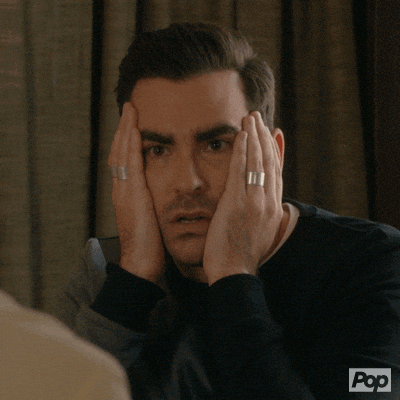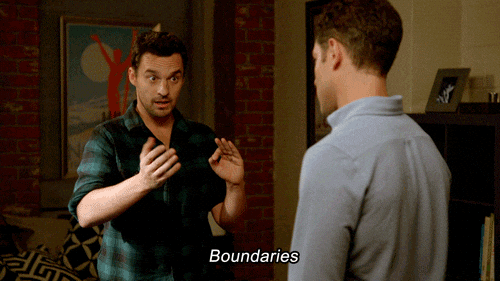The dark side of setting boundaries.
Boundaries exclude other people. Conversations don't.
I don’t advise setting boundaries in romantic relationships.
I know, I know… this counters common knowledge and contradicts what tens of thousands of therapists will stand by. But hear me out, because I’m not saying you should be a pushover.
Boundaries exclude.
Think, for a second, about boundaries in the context of politics: national boundaries keep people out. By design. They let people in under certain conditions, but you have to comply with those conditions. Because there are “boundaries.”
Even in your neighborhood, boundaries are meant to keep other people away from you. They’re there so the guy next door doesn’t crawl through your window, grab an IPA out of your fridge, lay back in your recliner, and fire up your Netflix.
What I’m saying is that boundaries, by their nature, exclude other people from your space. And in romantic relationships, that’s not necessarily what you want.
I mean… we all want space from our partners sometimes. We all want some independence, alone time, quiet. But we don’t want to break the connection.
Boundaries create distance so we can feel safe, so we can protect our needs. But there are better ways to achieve these outcomes without damaging your connection with your partner. You know… Decision Science ways.
Hear me out.
So there was this guy….
This guy I once dated… he was great. We were great together. It was all just so f’ing great.
But also, it was not great - because he kept setting firm boundaries. There was certain behavior he would not accept. Certain experiences he would not put up with.
And, he said, I engaged in those behaviors. I created those experiences.
I saw it differently. The way I saw it, we were frustrating each other. Misunderstanding each other. Experiencing kinks the way couples do when they don’t know each other well enough yet. The way I saw it, we could have worked through things, as long as we were open to each others’ points of view. As long as we were partners, in it together. As long as we compromised.
But to him, I crossed lines, and he let me know.
This hurt him more than helped him. And here’s why.
His firm boundary-setting was a unilateral move to set terms that impacted me as well as him. It expressed a foregone conclusion, minimizing any chance of constructive conversation, mutual understanding, and healthy compromise. It alienated me from my own relationship and created a too-huge space between us.
Ultimately, he set boundaries so consistently and definitively that our connection was permanently broken. Not because we had a bad thing, or because either of us were bad people. We had a beautiful thing, a relationship I know we both valued deeply. But the trust was severed, because…
When you’re trying to be close to someone, expressing your needs is essential. Understanding their needs is required. Compromise is key.
But telling your partner to step off, even when your needs are legit?
If the outcome you want is a closer relationship with your partner, setting boundaries may not be the option that gets you there. So before you set boundaries with your partner, ask yourself these three questions.
Keep reading with a 7-day free trial
Subscribe to Your Next Decision to keep reading this post and get 7 days of free access to the full post archives.







